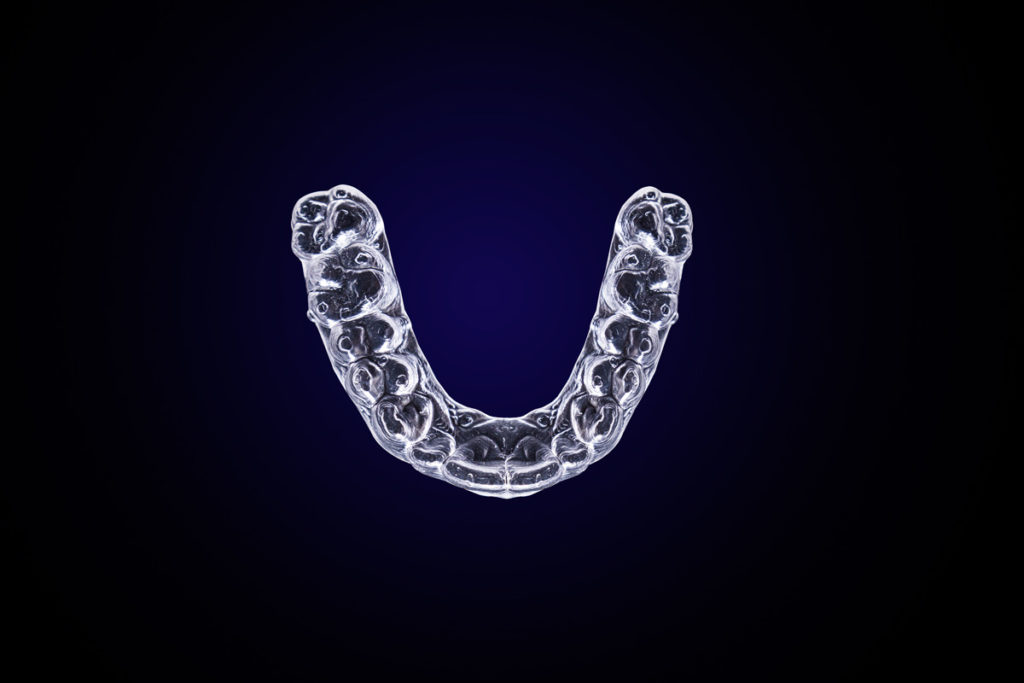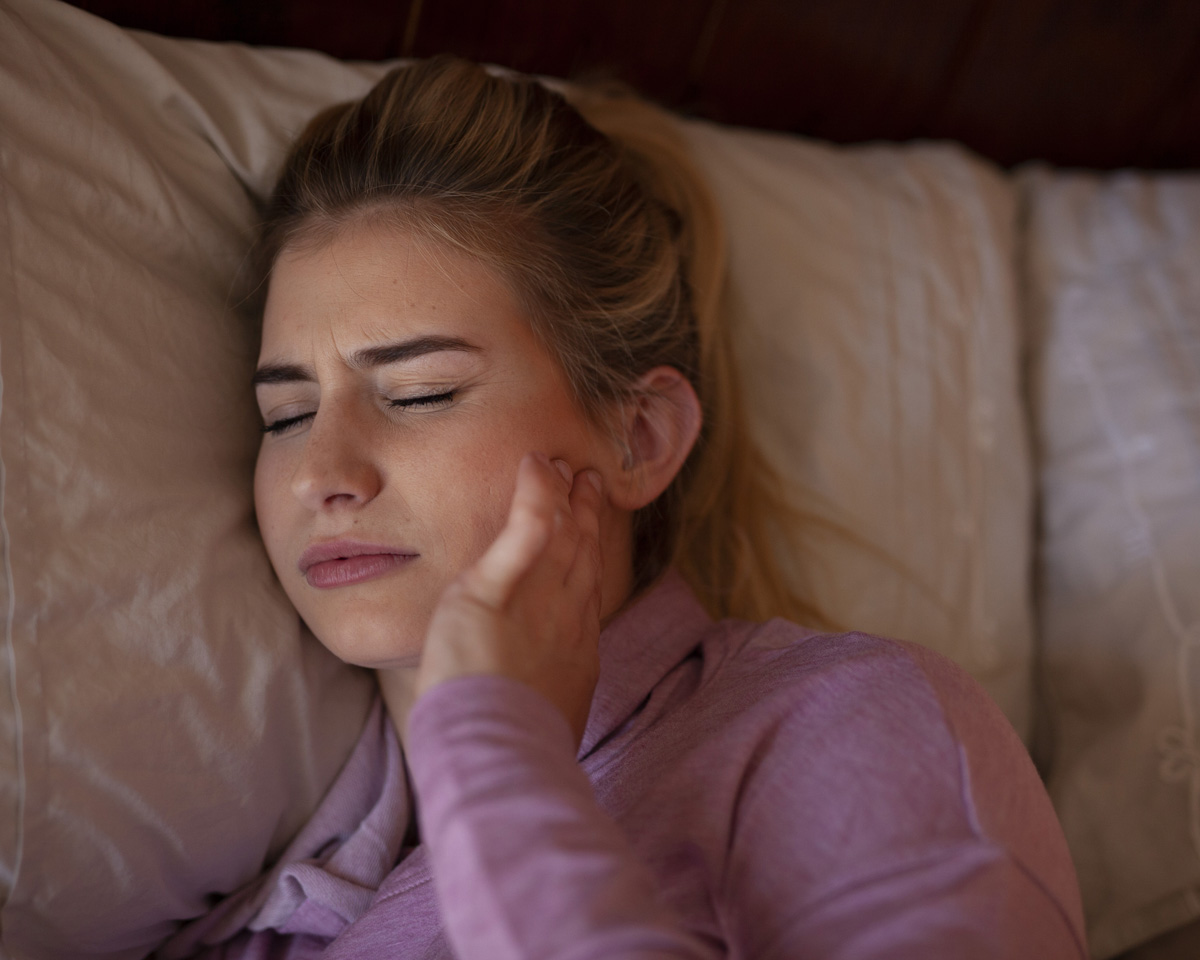When we experience significant stress, anxiety, fear, or even anger, some of us subconsciously tense our muscles all over our bodies, but especially our jaw muscles. This may seem rather harmless, but over time, all that jaw muscle tension creates many unpleasant health problems.
What Is Bruxism?
Bruxism is the medical name for the habit of grinding or clenching your teeth together. This condition is fairly common, especially in children where up to 60% of kids grind their teeth, especially at night. Although bruxism tends to fade away with increasing age, adults can have issues with clenching or grinding their teeth too.
There are two types of bruxism: awake bruxism (or daytime bruxism) and nocturnal bruxism (when people grind their teeth at night while they sleep).
Teeth grinding is a significant concern for dentists because bruxism puts an incredible strain on your teeth, mouth, and jaw muscles. Our teeth were not designed to handle that kind of wear and pressure. The damage to the teeth can be significant.
Bruxism Symptoms
Signs of bruxism include jaw and muscle pain, TMJ (temporomandibular jaw) syndrome, worn down teeth, tooth sensitivity, tooth pain, or loose teeth. Some patients may experience sleep problems, gum deterioration, or weakened/worn off enamel on the chewing surfaces of the teeth.
If the grinding or clenching of the teeth at night or during the day is severe enough, eventually, people may end up with fractured or broken teeth. Because of this tooth damage, bruxism can lead to many expensive dental procedures like restorations or crowns.
Bruxism Causes
There are a variety of reasons why people may develop the habit of grinding or clenching their teeth in their sleep or while they are awake. It seems to be a combination of psychological, genetic, physical, and environmental reasons, but doctors do not completely understand why bruxism occurs.
Awake Bruxism
People may develop bruxism (grinding or clenching teeth) as a result of stress, fear, depression, or anger. When people are under great emotional or psychological strain, the anxiety tends to manifest in the jaw muscles, causing people to clench their teeth while awake.
Bruxism could also be a side effect of some medications like certain antidepressants. And some doctors believe that an abnormal bite or missing/crooked teeth contribute to teeth grinding or clenching.
Nocturnal Bruxism
Researchers believe that sleep bruxism may be related to sleep disorders, possibly because of micro-arousals during sleep. People with nocturnal bruxism seem to have many more micro-arousals than those who do not grind clench their teeth at night.
Sleep-related bruxism appears to be related to sleeping muscle activity and sleep disorders like sleep apnea or sleepwalking.
Bruxism Diagnosis
If you think you may have bruxism, your dentist will do an evaluation. They will check for tender jaw muscles or damage to the inside of your cheeks. They will also look for broken/fractured teeth or other underlying jaw bone damage by using X-rays.
The dentist will also ask about certain medical conditions, any medications you are taking, and sleep concerns. Then, the dentist will determine the best route of patient care for your particular case.
How to Stop Bruxism
Once you are diagnosed with bruxism, you will want to know how to stop clenching your teeth or how to stop grinding your teeth whether while you are awake or at night.
Mild bruxism cases may not need any medical treatment. But if it is causing problems, patients may need to seek treatment.
Although there is no known bruxism cure, we can take certain actions to help lessen the severity, in most cases.
Bruxism Treatment
Here is a brief overview of possible treatment methods for bruxism.
Oral medicine
Dentists or doctors may prescribe muscle relaxants or anti-inflammatory medications to help with acute muscle spasms, bruxism headaches/TMJ headaches, and jaw pain.
Sometimes a general practitioner or psychiatrist may prescribe oral anti-anxiety or antidepressant drugs to help lessen depression, anxiety, and stress overall.
If bruxism might be a side effect of a medication you take, your doctor may change your medication to see if that helps.
Also, if there is a related disorder like acid reflux or sleep apnea contributing to your nocturnal bruxism, treating those other conditions can help with bruxism, as well.
Botox
Some dermatologists offer botox injections to help paralyze certain muscles in the jaw to help patients stop grinding their teeth in the day and at night. Often, multiple shots are required over time or the effect may eventually wear off.

Mouth Splints/Mouth Guards for Teeth Grinding
A dentist can fit patients with a specialized bruxism guard to prevent them from grinding and clenching their teeth at night. There are a variety of night guards for teeth grinding available. Mouth guards keep your teeth from touching and allow your jaw muscles to relax while you sleep so you cannot clench or grind your teeth at night.
Dental Work
Sometimes straightening the teeth can help. Adjusting the shape of chewing surfaces, or using crowns for broken or worn-down teeth may be necessary.
Other Methods
Several other options that may be helpful to help people stop grinding their teeth include:
- Jaw exercises/Physical Therapy—Certain TMJ exercises or bruxism jaw exercises can help to stretch and relax the jaw muscles.
- Stress Management/Relaxation Techniques—If you can lower your stress or anxiety level, you may be able to keep your jaw more relaxed.
- Sleep therapy—If improving sleep hygiene alone does not help, sometimes a sleep study with a sleep specialist may. If you have sleep apnea, your doctor may provide you with a CPAP machine. Treating sleep disorders may provide relief.
- Surgery – This approach may be used if someone has significant TMJ and jaw alignment problems that can’t be treated in other less-invasive ways.
Are you ready to talk with a dentist you can trust in the Columbia, SC area about bruxism for you or your child?
We would love to do a consultation with you and help you find the best bruxism treatment plan for you so you can enjoy the best possible oral and overall health.
Please contact us today!
